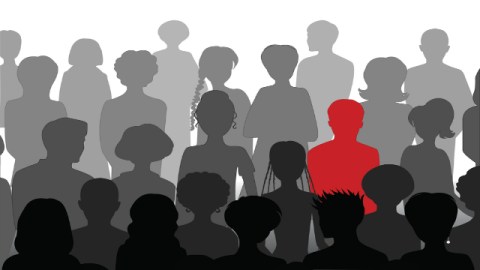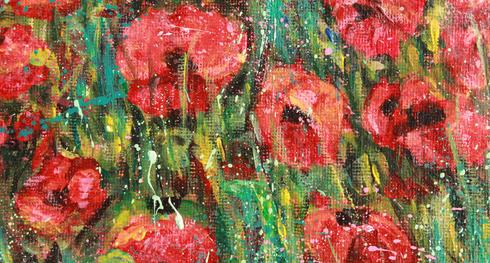Are You a Hero of Belief or a Hero of Disbelief?

People like us are rare. There is so much pressure to conform, but we are willing to be different. We dare to face down any crowd armed with only what we know to be the truth. As the society drifts toward barbarism, we stand defiant. Werisk public shaming and censure. We are on the wall. Each one of us in our own small way, in our homes or small communities, at work, or in public debate – we are the last line of defense for what is true, profound, and good.
Does this sentiment resonate with you?
In what follows, I will explore the idea that this sentiment might resonate equally well with “believers” and “atheists.”
If you live in America, you might live in a place where most people go to church regularly. Your neighbors often refer to the role that Jesus plays in their lives. Prayer is a big part of life. Others say they will pray for you when you are not well. One might pray about a problem when in need of an answer. Given the offhand jokes at the supermarket and other such scenarios, it seems generally taken for granted that the presidency of Barack Obama is lamentable. Few people publicly identify as Democrats.
Under these circumstances, the hero of disbelief feels beleaguered. He may even feel paranoid, on edge. Every saccharine pious smile is an offense. Every “generosity” is a fraud, complicit in the micro-coercion of his daily life. His only solace is his defiance. He is willing to sacrifice himself in his daily interactions because of his devotion to the truth. He is a hero of disbelief for the benefit of all humankind; he suffers with the hope that one day all people will be cured of this rampant blindness.
On the other hand, you might live in a place where almost nobody seems to go to church. Maybe there are some Jewish people around who participate in events at a temple or a synagogue, but they don’t seem to do this out of “religious” devotion – they never say anything that indicates unambiguous belief in God. People seem to care a great deal about gourmet food and drinks and are always on the lookout for the newest fashionable restaurant. Parents compare the rigorous schedules that they hope will make their kids successful. It is important to see the new independent film everyone is talking about. Republicans, Christians, the South, “middle America” – these are commonly the butt of offhand jokes, an easy and reliable laugh.
Under these circumstances, the hero of belief feels beleaguered, paranoid, on edge. The lifestyle that surrounds him seems so selfish, materialistic, and empty, it evokes actual disgust. And yet it plays to the base desires that all people have, so it also presents a temptation that he must vigorously resist. This is life in the sinful city that the hero of belief defies. He stands unwaveringly for Christ, accepting daily condescension and mockery in the spirit of Imitatio Dei.
In either of these cases, a chasm may separate the perception of the hero from what is actually happening around him.
In the context of believers, where the hero of disbelief feels besieged, many people may have doubts about their faith and explore those doubts with sophistication. They may even have liberal views on some issues. Such nuances will be obscured or suppressed when the hero of disbelief confronts these people and compels them to take a defensive posture.
Similarly, in the context of disbelievers, where the hero of belief feels harassed, many people may harbor openness to faith and even engage in religious activities. But the hero of belief will not likely have a chance to learn this, since he too compels his neighbors into a defensive posture.
To be sure, the picture that I have sketched here is a caricature in its own right. For instance, in African American communities people may present the characteristics that I associate with the context of believers, but this will not generally be connected to popular lament about the Obama presidency. And, of course, religious people also like to go to fashionable restaurants.
Hopefully, the caricature I have drawn is nevertheless plausible enough to make visible a common denominator that is sometimes shared by believers and disbelievers alike: the presumptive virtue of a certain kind of heroism.
When a hero of belief and a hero of disbelief do finally clash – at a bar, on a TV talk show, around the Thanksgiving table – heroism often seems to be the subtext. The surface level question may be: does God exist? Is there meaning or purpose in the universe? Is prayer worthwhile? But a deeper question underlying the debate seems to be: who is the bigger hero?
Consider some of the accusations that characterize these conversations: “religion is easy, it’s a crutch, the opiate of the masses, it doesn’t challenge the mind, it’s simplistic, childish, rather than present reasons for real discussion religious people offer conversation-stopping assertions of faith.”
Or: “atheism is adolescent, self-indulgent angst, it’s easily absorbed and regurgitated from the secular progressive media, it settles for smugness over justification, it accepts the easy condescending smirk over any hard confrontation with serious theology, it always goes after the least sophisticated believers, conveniently avoiding great thinkers of faith.”
Both kinds of accusers seem to agree that immaturity, conformity, uncritical self-satisfaction, and avoiding the best arguments of one’s interlocutor are grounds for condemnation. And all of these criteria seem to hang together contemptibly as: “the easy way out.” The hero of belief/disbelief, by contrast, heroically faces the challenge of walking the true path, which is far more difficult terrain.
The point of this exercise is to suggest that people often do not dig deep enough when they argue about “deep” topics like the existence of God, the meaning of life, etc. Digging deeper involves bringing to the fore the unspoken shared concepts and presumptive virtues, along with the subtle dimensions of performance and self-narration, that are generally left unacknowledged.
What is this presumptive virtue of heroism and where did it come from? Why do we feel the need to play the role of “the hero”? Why do we narrate our lives to others and ourselves in heroic terms?
If you are not a hero of belief or disbelief, maybe you are a hero of moderation and compromise. Maybe you are a hero of caprice – “I just do what I want, man.” My annoying tendency is to narrate myself as a hero of complexity: “everyone else is too simplistic; I alone am willing to endure complexity and ambiguity.” But I also have an annoying tendency to narrate myself as a hero of self-awareness: “others wouldn’t be willing to admit to and expose how they make themselves out to be heroes; I alone am willing to do so.”
There is not space in this post to elaborate on the sources of our shared admiration for heroism. But here’s a doggy-bag of food for thought to take with you: it derives from a nexus of influences that include the story of Jesus, Immanuel Kant’s imperative “Dare To Know!”, Horatio Alger novels, and Sylvester Stallone’s Rocky movies.
I suspect it will be worthwhile for all of us to dig deeper into these common sources, just to name a few.





